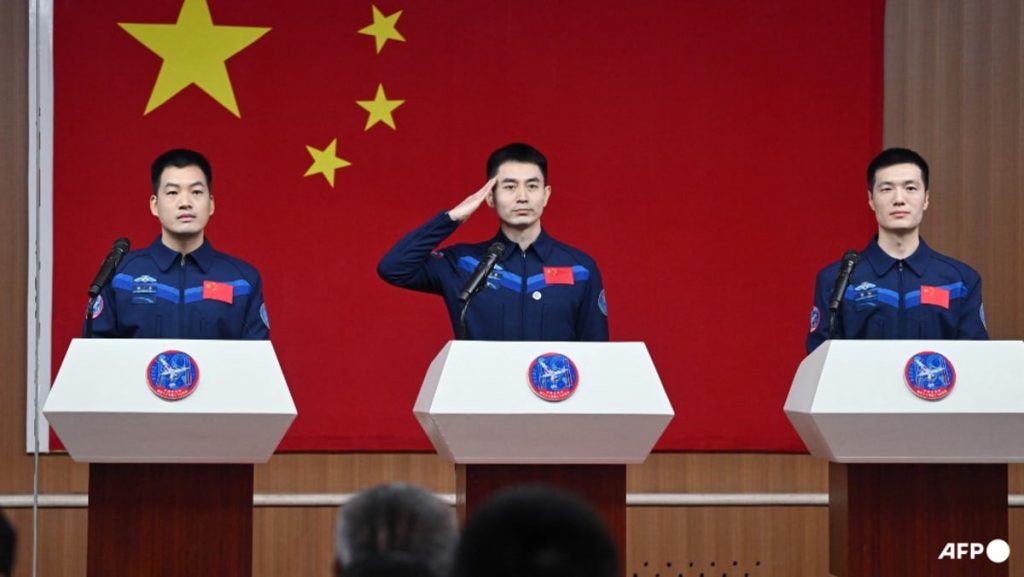ke off from the Jiuquan satellite launch center in the Gobi Desert atop a Long March-2F carrier rocket, officials said. The crew will spend six months onboard the Tiangong space station, conducting a variety of scientific experiments and technological tests.
The launch of the Shenzhou-18 mission marks another milestone in China’s ambitious space program. The country has been rapidly advancing its capabilities in space exploration, with plans to establish a permanent presence on the Moon and eventually send astronauts to Mars. The Tiangong space station is a key component of these goals, serving as a platform for scientific research and technological development.
China has made significant progress in developing its space infrastructure in recent years, building and launching space stations, satellites, and lunar rovers. The country’s space program has been closely watched by the international community, with some experts expressing concerns about China’s growing capabilities in space. However, Chinese officials have emphasized that their space activities are peaceful in nature and are aimed at advancing scientific knowledge and technology.
The crew of the Shenzhou-18 mission includes three experienced astronauts who have undergone rigorous training to prepare for their six-month stay aboard the Tiangong space station. The mission is expected to further advance China’s space capabilities and contribute to ongoing research efforts in areas such as materials science, life sciences, and space technology. The astronauts will also conduct experiments related to human health and physiological changes in space.
The success of the Shenzhou-18 mission will be a significant achievement for China’s space program, demonstrating the country’s ability to launch and operate crewed missions to its space station. The mission is part of a series of planned crewed missions to Tiangong, with additional missions expected to follow in the coming years. China’s long-term goal is to establish a fully operational space station by 2022, which will serve as a platform for a wide range of scientific research experiments.
Overall, the Shenzhou-18 mission represents a major step forward for China in its pursuit of space exploration goals. The crewed mission to the Tiangong space station will contribute valuable data and insights to China’s ongoing efforts to advance its space capabilities and pave the way for future missions to the Moon and beyond. As China continues to make strides in space exploration, the international community will be closely watching to see how the country’s ambitions evolve and how they shape the future of space exploration.















